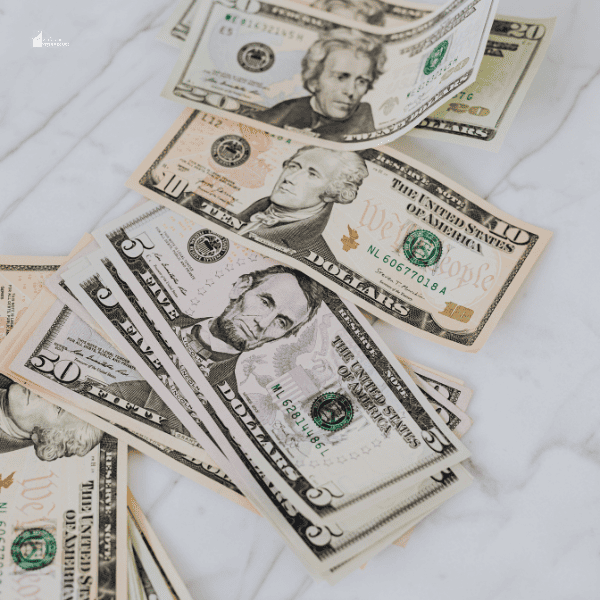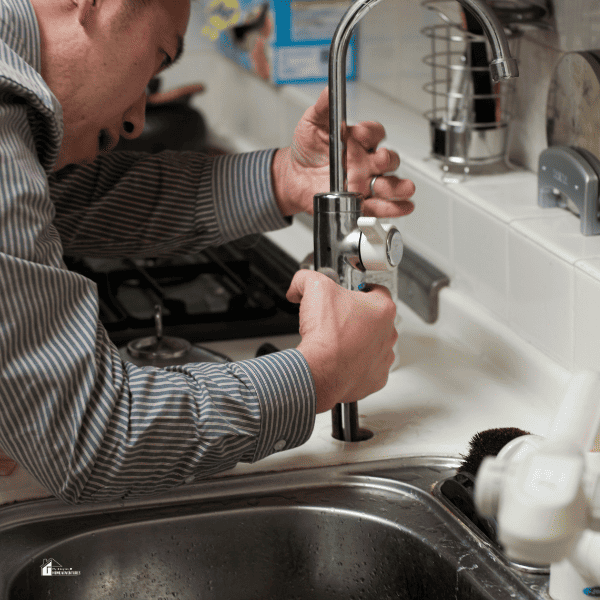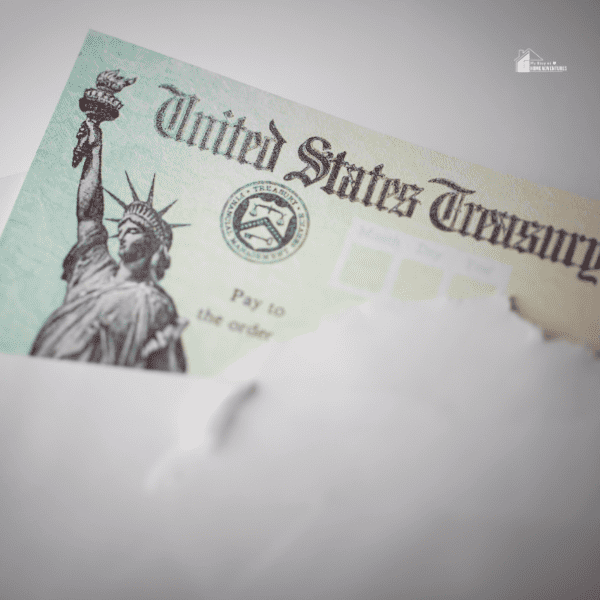What are the benefits of having a no-spend day or week?
This post may contain affiliate links which might earn us money. Please read my Disclosure and Privacy policies hereA no-spend day or week is exactly what it sounds like – a designated period of time in which you challenge yourself to spend no money on non-essential items or activities. It can be a powerful tool to help save money, curb unnecessary spending, and develop a more mindful approach to your finances.
During a no-spend day or week, you only spend on the essentials, such as bills, groceries, and transportation. Non-essential expenses like eating out, shopping, and entertainment are off-limits. This may seem difficult at first, especially if you're used to indulging in these activities regularly, but with some planning and creativity, it can be a rewarding experience.

How it can positively impact your finances
The benefits of having a no-spend day or week extend beyond just saving money. Here are some ways it can positively impact your finances:
- Increased savings: By cutting back on unnecessary expenses, you'll be able to save more money. The funds you would have otherwise spent can be diverted toward your savings goals, whether it's building an emergency fund, paying off debt, or saving for a big purchase.
- Improved financial discipline: Engaging in a no-spend challenge helps develop discipline and restraint when it comes to spending. It forces you to evaluate your wants versus your needs and make conscious decisions about where and how you spend your money. This newfound discipline can carry over into your regular spending habits, leading to better financial decisions in the long run.
- Discovering alternative ways to have fun: Many of our leisure activities involve spending money, such as going to the movies or dining out. When you commit to a no-spend day or week, you're forced to find free or low-cost alternatives for entertainment. This could be exploring local parks, having a game night with friends, or discovering new hobbies that don't break the bank. Not only does this save money, but it also exposes you to new experiences and can foster creativity.
- Increased awareness of wasteful spending: A no-spend challenge can make you more conscious of your spending habits and reveal any unnecessary or impulsive purchases. It prompts you to question whether you truly need something before making a purchase. This awareness can help you identify areas where you tend to overspend or make frivolous purchases, allowing you to make more informed choices in the future.
- Reduced financial stress: Financial stress is a common concern for many people. By taking control of your spending and actively working towards your financial goals, a no-spend day or week can alleviate some of that stress. Knowing that you're making progress towards saving money and being more mindful of your finances can bring a sense of peace and security.
Incorporating regular no-spend days or weeks into your routine can have numerous benefits. It not only helps you save money but also enhances your financial discipline, encourages creativity, and reduces wasteful spending.
So why not give it a try? Challenge yourself to have a no-spend day or week and see its positive impact on your finances and overall well-being.

Benefits of a No-Spend Day
Establishing better spending habits
A no-spend day or week can be a powerful tool in helping individuals establish better spending habits. Many people tend to spend money almost mindlessly, falling into the trap of routine spending. By designating a specific day or week to refrain from spending, individuals are forced to be more conscious of their financial choices.
This heightened awareness can lead to reevaluating wants versus needs and a deeper understanding of one's spending patterns.
During a no-spend day or week, individuals are challenged to only spend on essential items such as bills, groceries, and transportation. This restriction encourages individuals to prioritize their needs and curb unnecessary expenses. As a result, individuals often find that they can put away more money in savings to accomplish their financial goals.
Increased savings is one of the most obvious benefits of having a no-spend day or week. By eliminating non-essential expenses and cutting back on unnecessary purchases, individuals have the opportunity to redirect the funds they would have otherwise spent toward their savings goals.
Whether it's building an emergency fund, paying off debt, or saving for a big purchase, the money saved during a no-spend day or week can make a significant difference in achieving these financial objectives.
Breaking unconscious spending routines
Another significant benefit of incorporating a no-spend day or week into one's routine is the opportunity to break unconscious spending habits. Many people spend money almost automatically because it has become a part of their daily or weekly routine.
By consciously abstaining from spending on designated days, individuals can break free from these ingrained habits and develop a more mindful approach to their finances.
For example, suppose an individual consistently spends a substantial amount of money on date nights with their spouse on Saturdays. In that case, they can make that day their designated no-spend day and instead find new, fun, and free activities to do together. This saves money, encourages creativity, and strengthens the bond between partners.
Additionally, a no-spend day or week can increase awareness of wasteful spending. When individuals commit to not spending on non-essential items, they are forced to question the necessity of their purchases and evaluate whether they truly need something before making a decision.
This heightened awareness of wasteful spending can help individuals identify areas where they tend to overspend or make impulsive purchases, enabling them to make more informed and responsible choices in the future.
In conclusion, incorporating regular no-spend days or weeks into one's routine can have numerous benefits. It not only helps individuals put away more money in savings to accomplish their financial goals but also encourages the establishment of better spending habits and breaks unconscious spending routines.
By consciously refraining from spending on designated days, individuals can develop a more mindful approach to their finances, increase awareness of wasteful spending, and ultimately take control of their financial well-being.

Benefits of a No-Spend Week
Longer duration for more tangible results
One of the key benefits of having a no-spend week is that it allows you to see more tangible results compared to a no-spend day. While a no-spend day can help you become more conscious of your spending habits, a full week provides a longer period to truly assess your wants and needs.
By saying no to any unnecessary expenses for an entire week, you can better understand where your money is going and identify areas where you can cut back or make more mindful choices.
During a no-spend week, you will be forced to prioritize your essential expenses, such as bills, groceries, and transportation, while refraining from any non-essential purchases. This restriction challenges you to evaluate whether certain expenses are truly necessary or if they can be eliminated or postponed.
As a result, you may find that you are able to save more money and redirect those funds toward your financial goals, whether it's building an emergency fund, paying off debt, or saving for a specific purchase.
Resetting your spending mindset
Another significant benefit of a no-spend week is that it helps reset your spending mindset for the rest of the month. By consciously abstaining from spending for an entire week, you are giving yourself a chance to break free from any unconscious spending routines or habits.
Many people tend to spend money almost automatically, without really considering whether they truly need or want the item. By stepping back and refraining from spending, you can develop a more mindful approach to your finances.
During a no-spend week, you are challenged to find alternative activities or solutions that don't involve spending money. This encourages creativity and resourcefulness as you explore free or low-cost entertainment, socializing, and self-care options. It also helps you reassess your priorities and realign your spending habits with your values and goals.
Also, a no-spend week teaches you how to say no to spending. We often fall into the trap of feeling obligated to buy something or participate in a certain activity, even if it doesn't align with our financial goals or values. By practicing saying no to unnecessary expenses for a week, you can build the confidence and discipline to make more conscious choices in the future.
Let's recap: a no-spend week offers numerous benefits for your financial well-being. It allows you to see more tangible results, reset your spending mindset, and develop better habits when managing your money.
By consciously refraining from spending for a set period of time, you can evaluate your wants and needs, save more money, and ultimately take control of your financial future. So why not give it a try? Challenge yourself to a no-spend week and experience the positive impact it can have on your overall financial health.

How a No-Spend Week Can Help You
Saying no to unnecessary expenses
A no-spend week challenges you to say no to unnecessary expenses and reevaluate your spending habits. The temptation to make impulse buys or indulge in non-essential purchases can be difficult to resist, but by consciously refraining from spending for a week, you can develop the discipline to make more conscious choices.
It teaches you to distinguish between wants and needs and encourages you to find alternative ways to satisfy your desires without spending money. By practicing saying no to unnecessary expenses, you can take control of your spending habits and prioritize your financial goals.
Saving money and getting out of debt faster
One of the most obvious benefits of a no-spend week is the opportunity to save money. By cutting out discretionary spending for a set period of time, you can redirect those funds towards your financial goals. Whether it's paying off debt, building an emergency fund, or saving for a specific purchase, a no-spend week provides a significant boost to your savings. It allows you to free up funds that would have otherwise been spent on unnecessary items or experiences. These small savings can add up quickly and help you get out of debt quicker or save money faster.
Resetting your spending mindset
A no-spend week provides a chance to reset your spending mindset and break free from unconscious spending routines. Many of us tend to spend money without really considering whether we truly need or want the item. By stepping back and refraining from spending for a week, you can develop a more mindful approach to your finances.
It forces you to evaluate your priorities and align your spending habits with your values and goals. You are encouraged to find alternative activities or solutions that don't involve spending money, fostering creativity and resourcefulness.
Developing better financial habits
Participating in a no-spend week teaches you valuable financial lessons that can have a long-lasting impact. It requires planning and preparation to ensure your basic essentials are covered without spending any extra money. This process helps you become more aware of your financial situation and increases your financial literacy. You learn to distinguish between needs and wants, prioritize your expenses, and make conscious choices. These habits carry over into the rest of the month and beyond, helping you make better financial decisions overall.

Boosting your financial self-esteem
Successfully completing a no-spend week can boost your financial self-esteem and confidence. It demonstrates your ability to control your spending, resist temptation, and make conscious choices that align with your goals. This sense of accomplishment can have a positive impact on your overall financial well-being. It reinforces the belief that you have the power to take control of your finances and make a difference in your financial future.
In conclusion, a no-spend week offers numerous benefits for your financial well-being. It teaches you to say no to unnecessary expenses, helps you save money and get out of debt faster, resets your spending mindset, and develops better financial habits.
Participating in a no-spend week is a tangible way to take control of your finances and work towards your financial goals. So why not challenge yourself to a no-spend week and experience the positive impact it can have on your overall financial health?
Conclusion
Implementing a no-spend day or week can have a significant impact on your financial well-being. By challenging yourself to abstain from unnecessary expenses and reassess your spending habits, you can save money, get out of debt faster, reset your spending mindset, develop better financial habits, and boost your financial self-esteem. Participating in a no-spend day or week provides tangible results and teaches valuable financial lessons that can lead to long-term financial success.
Recap of the benefits of a no-spend day or week
The benefits of incorporating a no-spend day or week into your life are vast. Firstly, saying no to unnecessary expenses allows you to prioritize your financial goals and distinguish between wants and needs. It enables you to resist impulse buys and make more conscious choices about how you spend your money. By practicing self-discipline in your spending, you can take control of your finances and align your spending habits with your values and long-term goals.
Secondly, a no-spend day or week provides a unique opportunity to save money and get out of debt faster. By eliminating discretionary spending for a set period of time, you can redirect those funds towards your financial goals. The small savings from cutting out non-essential purchases can add up quickly, allowing you to make substantial progress towards paying off debt, building an emergency fund, or saving for a specific purchase.
Furthermore, participating in a no-spend day or week resets your spending mindset. It breaks you free from unconscious spending routines and encourages mindfulness in your financial decisions.
By taking a step back and refraining from spending, you learn to evaluate your priorities and find alternative activities or solutions that don't involve spending money. This fosters creativity and resourcefulness while reinforcing the importance of aligning your spending habits with your values.
In addition to resetting your spending mindset, a no-spend day or week helps you develop better financial habits. It requires planning and preparation to ensure your basic essentials are covered without spending any extra money. This process increases your financial literacy and awareness of your financial situation.
You learn to distinguish between needs and wants, prioritize your expenses, and make conscious choices about how you allocate your funds. These habits carry over into the rest of the month and beyond, helping you make better financial decisions in the long run.
Lastly, successfully completing a no-spend day or week can boost your financial self-esteem. It demonstrates your ability to control your spending, resist temptation, and make conscious choices that align with your goals.
This sense of accomplishment and empowerment can have a positive impact on your overall financial well-being. It reinforces the belief that you have the power to take control of your finances and make a difference in your financial future.

Encouragement to try implementing it in your life
Considering the numerous benefits of a no-spend day or week, it is highly recommended to incorporate this practice into your life. By committing to regular periods of abstaining from unnecessary expenses, you can reset your spending mindset, save money, and develop better financial habits. It is a tangible way to take control of your finances and work towards your financial goals.
Start by choosing a specific day or week each month or week, depending on your preference and lifestyle. Challenge yourself to say no to unnecessary expenses and find alternative ways to satisfy your desires without spending money. Remember, flexibility is key, so feel free to adapt the rules to suit your needs and circumstances. Set realistic goals and celebrate your achievements along the way.
By embracing the habit of having no-spend days or weeks, you can enhance your financial fitness and pave the way for a healthier and more financially secure future. Take the leap and experience its positive impact on your overall financial well-being. Your future self will thank








